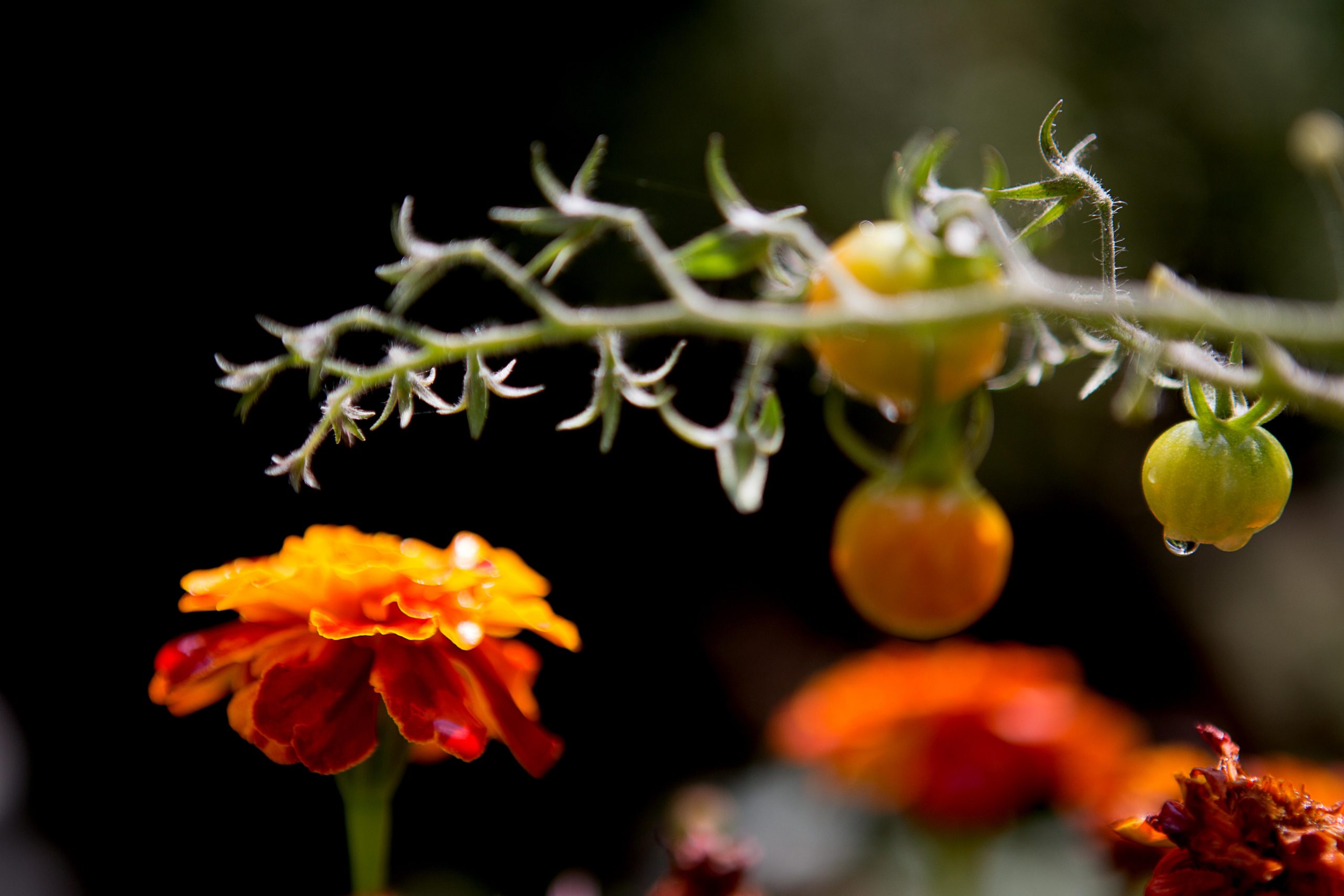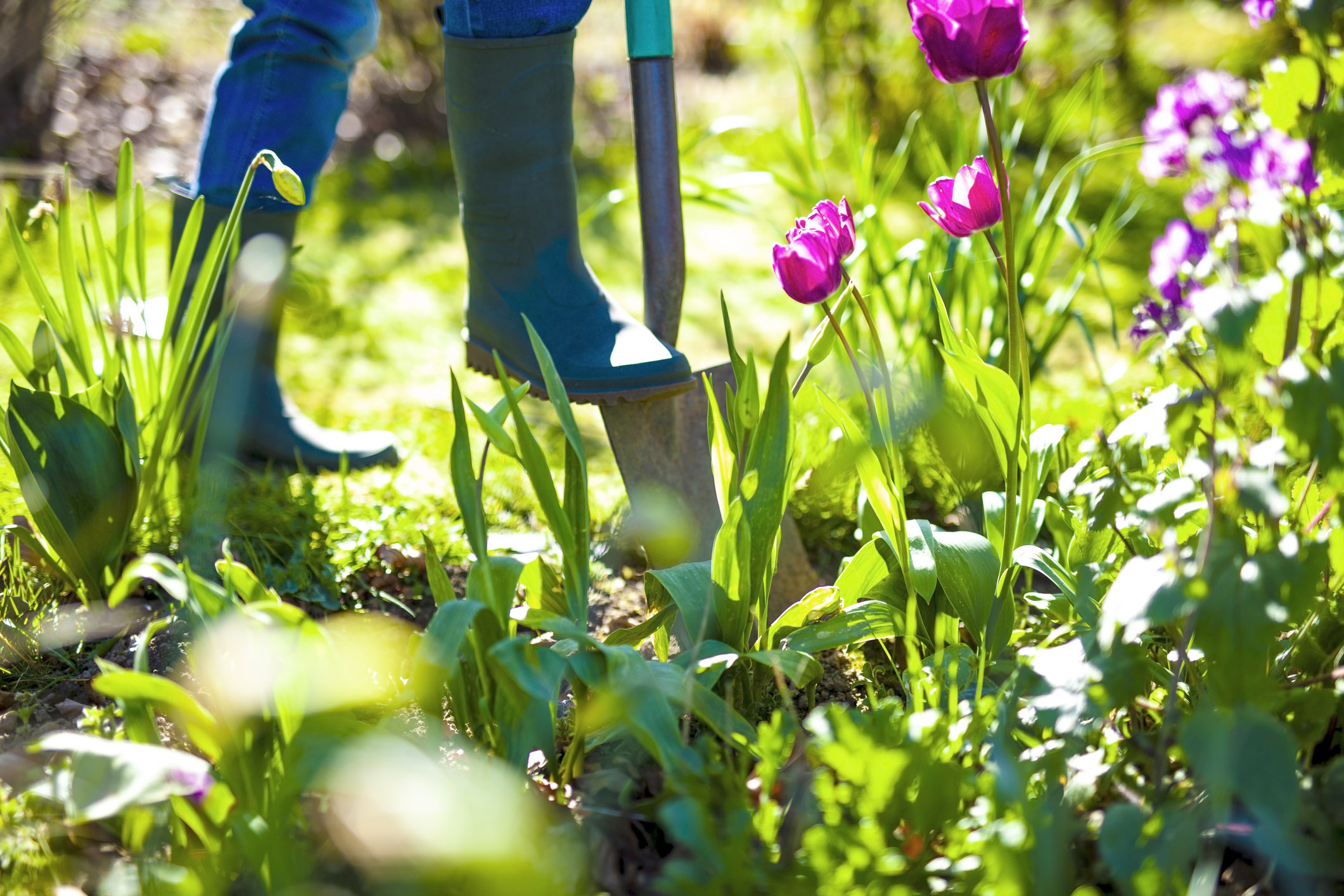Alan Titchmarsh: The old wives' tales of gardening that are total rubbish — and the ones with a grain of truth
There is often more than a grain of truth in gardening wisdom that comes from folklore.


Do you believe in ‘Old Wives’ Lore’? I hesitate to give offence to those senior members of the distaff side, but I am unaware of any neater, more concise way of summing up those snippets of gardening wisdom that are encompassed by the term: the aphorisms and saws that have been handed down through the generations as rural wisdom and which, in spite of our obsession with modern technology, still possess rather more than a grain of truth.
I would never dream of describing my late mother as an ‘old wife’, not least because, during the period in which I was at the mercy of her proverbs and prejudices, she was in her thirties. What’s more, I have reason to be grateful for many of them. Growing up in Yorkshire, some 200 miles distant from the ‘soft’ South, my mother would remind me to add at least a month on to the recommended sowing date to be found on the backs of the packets of Cuthbert’s and Bees’ seeds I would buy on a Saturday morning in Woolworths.
‘Spring comes later up here,’ she would say, and there was no denying that. Had I committed my parsnip seeds to the earth in February, as the packet suggested, that would most certainly be the last I would have seen of them. Nowadays, I doubt that parsnips would germinate in any UK garden in February, regardless of latitude, thanks to our wetter winters.
When I was a boy, the seeds of parsley were regarded as having the most complex requirements. ‘They must,’ insisted my mother, ‘be sown on Good Friday. That is the only day in the year when the seeds do not go nine times to the devil before they come up.’
In other words, germination would be faster. Good Friday, in most years, would fall in April, when the soil had warmed up sufficiently — even in Wharfedale — to encourage more rapid germination, so the advice was hard to refute.
Other gardeners suggested that I run along the parsley seed drill with a kettle of boiling water just before sowing. Old Harry, who worked at the local nursery, articulated the alternative belief about parsley seeds: ‘They only grow for households where the woman wears the trousers.’ (Our parsley seeds grew well each year and I was never brave enough to share Harry’s opinion with my mother.)
We talk today about ‘companion planting’, which has its roots, ahem, in folklore. I confess to planting small-flowered tagetes alongside my tomato plants in the belief that whitefly are discouraged by the pungent root exudate of the marigold. The effect is not nearly so marked if the marigolds are simply nearby — they need to have their roots in the same earth as the tomatoes.
Exquisite houses, the beauty of Nature, and how to get the most from your life, straight to your inbox.
Carrots grown next to onions and garlic are less likely to fall prey to carrot fly. The strong aroma of the onion family will mask the scent of the carrots and deter attack. That much makes sense.
But why should gladioli adversely affect the growth of peas, beans and even strawberries, which, it is said, will not grow well within 50ft of a row of gladioli? (Of this, I have no experience, but am happy to avoid wasting a year’s worth of my ‘Cambridge Favourite’s by planting my least favourite flower.)
Neither have I had to resort to burying a stick of rhubarb at intervals among my cabbages to ward off clubroot; I garden on chalky soil and, so far, the geology does the job for me — clubroot being at its most rampant on acid ground.
Slugs and snails are, of course, the most hated pests of all. Old Wives’ cures for these? The ancients would wind horsehair rope as a barrier around susceptible plants, which the molluscs hesitated to cross. Horsehair rope is in short supply nowadays and many folk use coffee grounds instead. This presupposes that you do not mind an herbaceous border that is redolent of the local branch of Starbucks.
Then there is the moon. Always sow and plant with a waxing, not a waning moon. The moon affects not only the tides, but also the pull of water across the planet — and that includes the sap in plants. They grow better when the moon is waxing rather than waning.
Perhaps this is what I should be concentrating on this year — sowing according to the phases of the moon. ‘There are more things in heaven and earth Horatio’... than manure and garden compost alone can ever hope to influence.

Credit: Getty
Alan Titchmarsh: Why I relish the worst jobs in gardening
Alan Titchmarsh admits that it's not just gardening's most challenging tasks, but also its the mundane chores that 'give me
Alan Titchmarsh is a gardener, writer, novelist and broadcaster.
